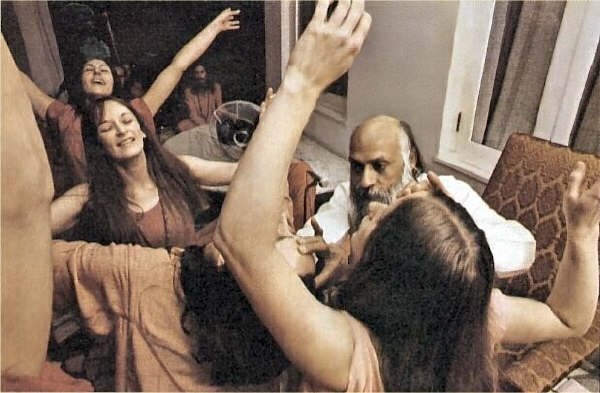By the dropping of the mind, all distinctions are dropped and you are in a deep, undiscriminated reality.
That is what truth is. It is not God, it is not Devil; it is not light, it is not darkness — it is beyond both. OSHO
It is said of a Zen Master, who, in his younger days, was a disciple of another Master, that he had been working hard at his meditation for months together. The one day the Master came, sat in front of him with a brick and started rubbing the brick on the stone. The sound was there and it was distracting and disturbing to the young disciple.
Finally, irritated, the young man asked, 'What are you doing?'
The Master said, 'I am trying to make a mirror.'
The disciple said, 'Have you gone mad?' Just by polishing a brick a mirror cannot be made, you may polish it for your whole life. Mirrors are not made that way.'
And the Master said, 'Then I have nothing to say to you. You are trying to polish your mind. Mirrors are not made that way either. I throw this brick — see — you do the same.'
Drop the mind. It is not a question of polishing the mind, modifying the mind, making it more and more clear. It is not a question of changing the mind, it is a question of dropping it utterly.
Buddhism is an effort to drop the mind totally. But how to drop the mind? If you continue in thinking — likes and dislikes, prejudices, this is good, this is bad — then you cannot drop the mind because it is the mind which distinguishes, discriminates, it is the mind which divides, categorises. All categories are of the mind.
That's why Buddhists don't say that God is good and Devil is bad, because for a Buddhist God and Devil are both of the mind — good and bad. That's why Buddhists don't say choose heaven and avoid hell because they say both are of the mind — hell and heaven. Drop the whole mind. And by the dropping of the mind, all distinctions are dropped and you are in a deep, undiscriminated reality.
That is what truth is. It is not God, it is not Devil; it is not light, it is not darkness — it is beyond both.
OSHO


